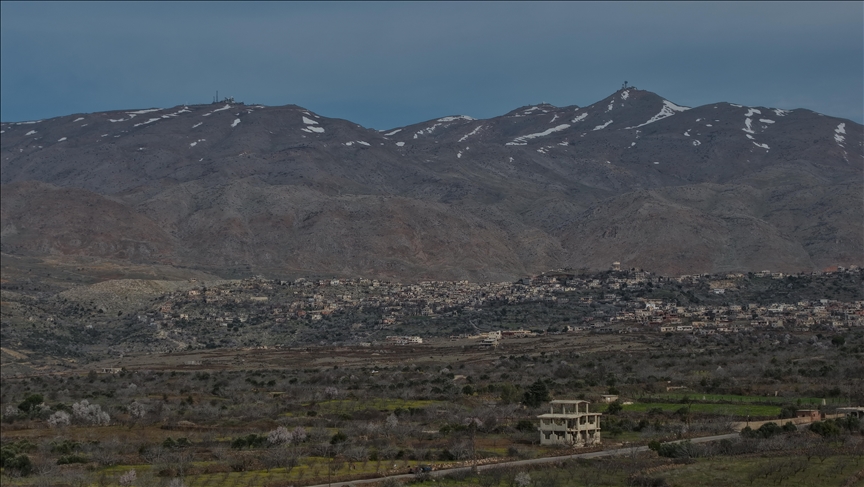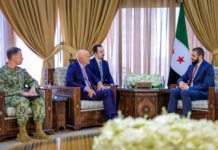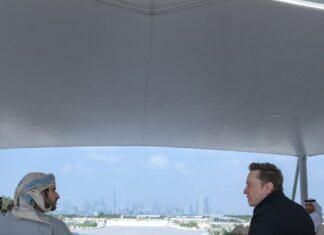
Residents of Quneitra’s border villages say daily life has become a test of endurance under near-constant Israeli military presence. The Circassian-majority villages of Brega and Bir Ajam, once home to about 250 families before 2011, now count fewer than 60, according to village headman Saifuddin Jawish, who spoke to Anadolu Agency. Jawish said Israeli patrols cross through the villages several times a day, often entering homes and detaining residents temporarily.
“Transportation has nearly stopped,” Jawish said. “Students and employees can’t reach their schools or jobs. It feels as if the military presence is hovering over us.” He added that what were once socially vibrant communities have been reduced to quiet, aging enclaves after ongoing incursions and shrinking economic opportunity.
The hills surrounding the two villages are now dotted with Israeli military posts, creating what Jawish described as a “siege-like” atmosphere. The proximity to the ceasefire line—just three kilometers away—has made them especially vulnerable to cross-border operations and gunfire.
Ongoing Occupation and Resistance in the South
Israel has maintained a 15-kilometer-wide occupation zone in southern Syria for the past seven months, controlling territory that includes roughly 40,000 Syrians. This area has seen repeated incursions, including Wednesday’s patrol by Israeli forces into Ofaniya and Eastern Samdaniya, north of the Quneitra countryside.
A Syria TV correspondent said a convoy of eight Israeli military vehicles, including tanks and a bulldozer, entered the villages, raided homes, and stationed troops near Tel Kroum Jaba before withdrawing. Farmers near Jabata al-Khashab report being harassed when they attempt to reach their land, with soldiers firing at them and using smoke bombs to drive them away.
These activities have fueled anger among locals. When Israeli troops distributed aid in Ain al-Qadi on Thursday—including food, flour, and baby milk—residents burned it in protest. “We refuse to accept anything from the occupation,” one villager told Syria TV, saying the aid was seen as an attempt to “legitimize the Israeli presence.”
Diplomatic Efforts and Shifting Alliances
As tensions rise along the border, Syria’s new leadership is seeking international backing to confront Israeli advances. During his visit to Moscow, Syrian President Ahmad al-Sharaa met with Russian President Vladimir Putin to discuss defense cooperation and the restoration of Syrian sovereignty. According to Yedioth Ahronoth, Sharaa urged Russia to oppose Israeli efforts to expand the demilitarized zone and to return UN and Russian inspectors to monitor ceasefire violations.
Sharaa emphasized that any future security arrangements must respect Syria’s territorial integrity and airspace. Syria’s priority is to halt repeated Israeli raids and ensure internal stability, he expressed in previous statements. For the remaining residents of Quneitra’s border villages, stability feels distant. As Jawish put it, “We only want peace—but peace requires the end of occupation.”








